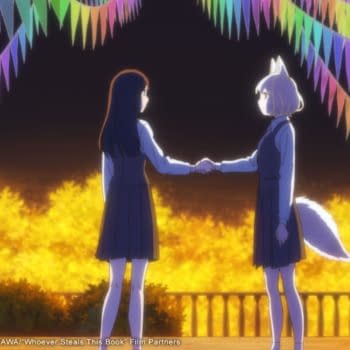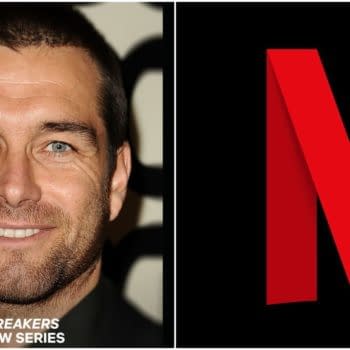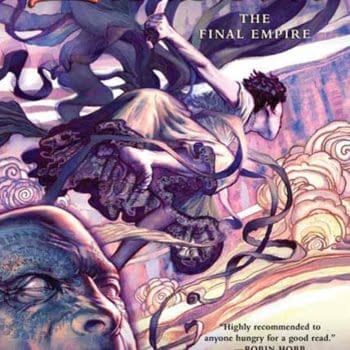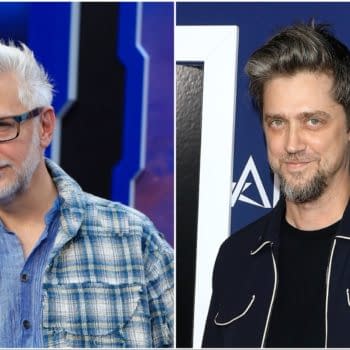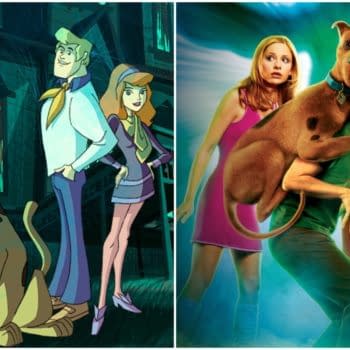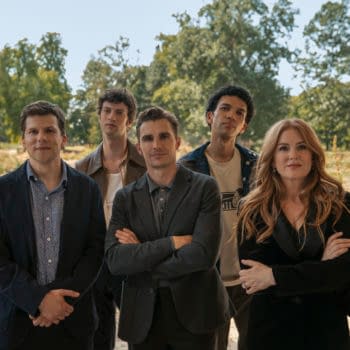Posted in: Movies | Tagged: shin godzilla, toho studios
Look! It Moves! – Shin Godzilla and the Politics of Giant Radioactive Lizards
It's always fun to write about Godzilla.
To the Japanese, Godzilla movies have always been political, metaphors for whatever issues preoccupied the country at the time, starting with Godzilla standing in for the atom bomb in the first movie, through to Godzilla as a protector of Japan in the 1970s as nuclear power became normalized, to Godzilla fighting environmental disaster, US hegemony, the dystopia of the post-boom 90s and so on.
The 2014 Hollywood version of Godzilla wasn't really about anything beyond a vague allegory about protecting the Earth. It was also hampered by the fact that for a two-hour movie called Godzilla, Godzilla was in less than 15 minutes of it. It was ultimately empty as many Hollywood blockbusters are so as to be as inoffensive as possible to global audiences.
A bad Hollywood version of Godzilla always prompts Toho Studios in Japan to make their own brand new Godzilla movie to remind everyone how it's done, and now we have Shin Godzilla.
Shin Godzilla is the most political Japanese movie of the year. Written and directed by Hideaki Anno, the creator of Evangelion, and Shinji Higuchi, who had directed episodes of Evangelion and the recent live action Attack on Titan movie.
It's a West Wing-style political drama with Godzilla in it. It begins as a drily bitter satire about how woefully unprepared the Japanese government to cope with a true catastrophe. When the creature first attacks, the old fogeys in the government are too busy fielding committees discussing every detail before any decision can be made. How many blockbuster movies have a politician as its hero? Hiroki Hasegawa's Yaguchi is a junior minister who's rational, competent and sees the real threat while the old men in the cabinet argue over semantics. He's not a soldier or action hero but a bureaucrat devoted to public service, and it is he who assembles the task force of mavericks, eccentrics and outliners who figure out what makes Godzilla tick and how to stop it. It's telling that Shinya Tsukamoto, the director of Tetsuo, plays one of the eccentric scientists who figures the fun pseudo-science behind Godzilla's evolution and powers.
Godzilla is a metaphor for Fukushima, an unstoppable, unfathomable disaster that keeps evolving beyond human means to control. There is nothing cute or cuddly about this Godzilla. It is Other and terrifying. The scenes of civilians fleeing disaster are shot handheld, with the immediacy of a documentary or news footage. Images of devastation are reminiscent of those from the Fukushima disaster on purpose. Godzilla is once again a symbol of divine retribution against Japan here, a very large and radioactive chicken come home to roost.
The movie is suffused with Japan's fear of becoming irrelevant, and of becoming both literally and culturally extinct. There are haunting scenes of devastation glowing with an eerie, radioactive beauty as Godzilla, in its final form, stands over the land like a monument of doom that can't be removed, much like the Fukushima power plant.
It's about Japan's discontent with being beholden to the beck and call of US policy. The US is portrayed as a bully riding roughshod over Japan's sovereignty, willing to sacrifice or destroy Japan to save its own skin. The whole movie is a cry for Japan's independence. Western critics may find the Japanese-American diplomat and government liaison played by Satomi Ishihara to be ridiculous, but she's clearly meant to represent the brash obnoxiousness of America, and her behaviour is how the Japanese imagine Americans are like.
The movie is nationalist propaganda wishing for Japan to be able to call its own shots without having to bow to the US. Shinzo Abe, the right-wing prime minister of Japan, may have endorsed the movie, but it's not as gung-ho about military intervention as you might think. The military is still completely ineffectual against Godzilla. Attempts to shoot and bomb Godzilla are met with even more destruction and loss of life. In the end, it's only by treating Godzilla as a natural disaster, not an invading army, and using tactics of civil defense and putting out a fire, that save the day, not combat.
This is a movie written and directed by nerds with the message that it's nerds who will save the world. Anno and Higuchi have thought deeply about how to reboot and reconfigure the symbolic power of the original 1954 Godzilla and update it to the even worse horrors of 2016.
In the end, the movie is a call for the young, the nerdy and creative to rise up, take over from the tired old men and save Japan. And victory here isn't as triumphant as US blockbuster are. There's no stopping a force of nature. Only buying time, and the threat never truly goes away. Just like Fukushima and the threat of radioactive contamination.
It's no wonder this has been a huge hit in Japan. A good Godzilla movie is always about the catharsis of giving voice to Japan's latest fears, and those fears are justified.
Once more, with bite, at lookitmoves@gmail.com
Follow the official LOOK! IT MOVES! twitter feed at http://twitter.com/lookitmoves for thoughts and snark on media and pop culture, stuff for future columns and stuff I may never spend a whole column writing about.
Look! It Moves! © Adisakdi Tantimedh







